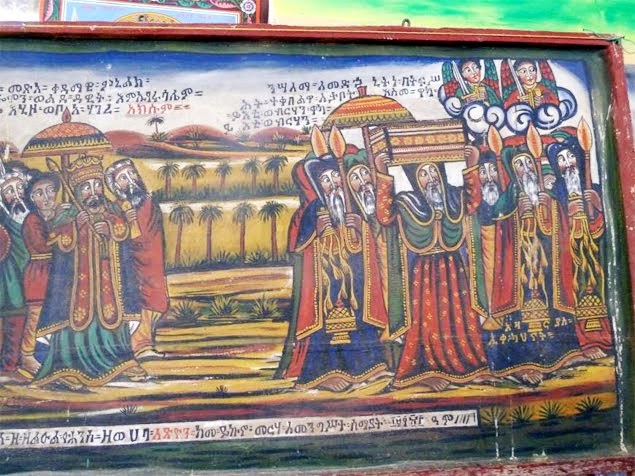IDF tells Knesset committee incarceration rates were down but that dishonorable discharge figures are rising
September 29, 2014, 4:34 am 5

A soldier of Ethiopian heritage in a Nahal Brigade drill in the Golan Heights (photo credit: Nir Gal/IDF Spokesperson's Unit)
The incarceration rate of Israeli soldiers of Ethiopian heritage has dropped considerably during the first half of 2014 as opposed to the same period in 2013, the army told a Knesset oversight committee on Sunday.
The overall figures, however, are still troubling, the army conceded, with the community still severely over-represented in army prisons and the dishonorable discharge rate hovering at 22.8 percent for men and 10.6% for women – both figures that have risen slightly over recent years and which are well above the national averages of 16.5% and 7.5% respectively.
“Although the figures do show a slight improvement, the gaps are still large and in certain realms there has even been a regression,” said MK Omer Bar-Lev (Labor), a colonel in the IDF reserves and the chair of the subcommittee of the Knesset’s Foreign Affairs and Defense Committee that heard the IDF report on Sunday. The committee is closely monitoring the army’s progress in integrating the Ethiopian community successfully into its ranks.
Motivation to serve in the IDF is high among the 130,000 or so Israelis of Ethiopian heritage, IDF data indicated, with 89% of teenage boys and 57% of teenage girls joining the army.

Soldiers of Ethiopian heritage near Beer Sheva (photo credit: Serge Attal/ Flash 90)
The discrepancy between the desire to serve at the onset and the service record upon discharge has spurred the army into action. Early in 2013, the army’s first female major general, the recently retired commander of the IDF’s Manpower Division, Maj. Gen. Orna Barbivai, set aside funds, despite across-the-board cuts in the army’s budget, for the establishment of a department devoted solely to the advancement of soldiers of Ethiopian heritage.
The army now runs a 24-hour call center in Hebrew and Amharic for soldiers, pre-draft teens and parents. It streamlined the process of requesting financial aid by requiring only the recommendation of an officer and an NCO, and not the bevy of bank statements required of other soldiers requesting assistance. It mandated yearly home visits by direct commanders, beginning no later than eight weeks after a soldier’s draft date. And, among a score of other measures, it launched a pre-army program solely for Israelis of Ethiopian heritage, AMIR, and began administering an alternative set of evaluation tests which gauge cognitive capacity rather than aptitude.

Maj. Hila Halpern, right, the commander of the IDF department charged with integrating and advancing soldiers of Ethiopian heritage (Photo credit: Mitch Ginsburg/ Times of Israel)
Maj. Hila Halpern, the commander of the new department, told the MKs that the new testing method had proven effective, enabling the army to post soldiers from the community to more challenging and interesting positions in the Air Force and the Intelligence Corps, among other units, and led to the corresponding drop in the incarceration rate, which fell over the past year from 10.8% to 9.1% – though the reduced figure is still more than double the community’s representation in the army at large.
Bar-Lev scolded the army at the outset for sending him a copy of the new figures “eight and a half minutes” before the start of the session, and insisted that the drop in the number of male officers and the rise in the number dishonorable discharges suggested the army was taking credit for the improvements but deeming as inexplicable the setbacks. “You keep finding the coin under the beam of the flashlight,” he said.

Labor MK Omer Bar-Lev arrives at a session of the Foreign Affairs and Defense Committee in the Knesset, Tuesday, May 20, 2014 (photo credit: Flash90)
There are currently 10 times more soldiers of Ethiopian heritage being dishonorably discharged than attending officers’ training school, he added.
MK Yisrael Hasson (Kadima) asked Halpern what had become of the committee’s earlier recommendation to change the way soldiers from the community are put on trial, with an emphasis on higher-ranking officers meting out justice. “That is the sort of change we are looking for,” said Hasson, a former deputy head of the Shin Bet. Halpern replied that the army was still weighing the matter.
Ziva Mekonen Degu, the executive director of the Israel Association for Ethiopian Jews, lamented the army’s “segregationist” approach, adding that the solution to the problem can’t be based on skin color alone.

MK Pnina Tamano-Shata. (photo credit: Flash90)
MK Penina Tamano-Shata (Yesh Atid) told The Times of Israel in May that the Amir course, which is solely for members of the community, “is an embarrassment and a disgrace and a certificate of poverty.” Can you imagine this happening in the US Army, she asked, “a course only for African-Americans?”
Seated at the head of the committee’s large oval table, Bar-Lev ignored the charges of segregation and instead asked the army to prepare a plan for the successful re-entry of the soldiers into the civilian world. “In the end, most of the years that these young men and women serve the state are after their discharge,” he said, adding that bridging the gaps for these teens “is a social and security imperative of the first order.”
Read more: Mixed results for army's Ethiopian integration program | The Times of Israel http://www.timesofisrael.com/mixed-results-for-armys-ethiopian-integration-program/#ixzz3Egvzg2zu
Follow us: @timesofisrael on Twitter | timesofisrael on Facebook
